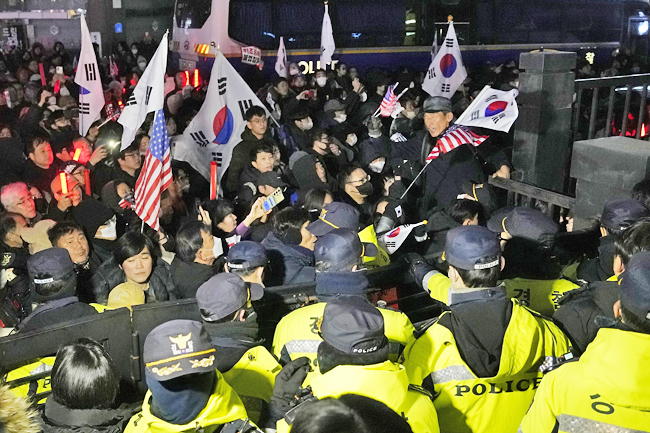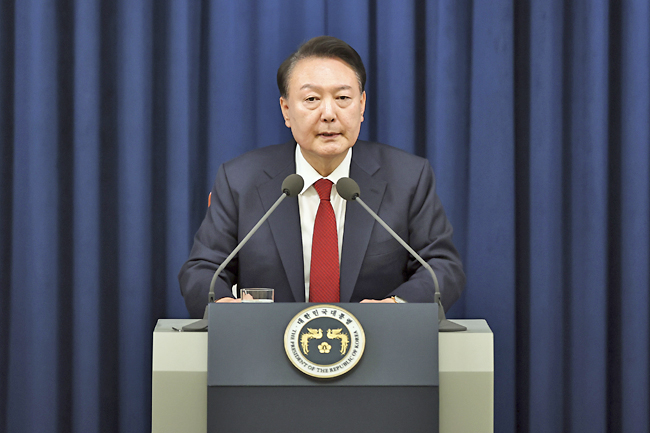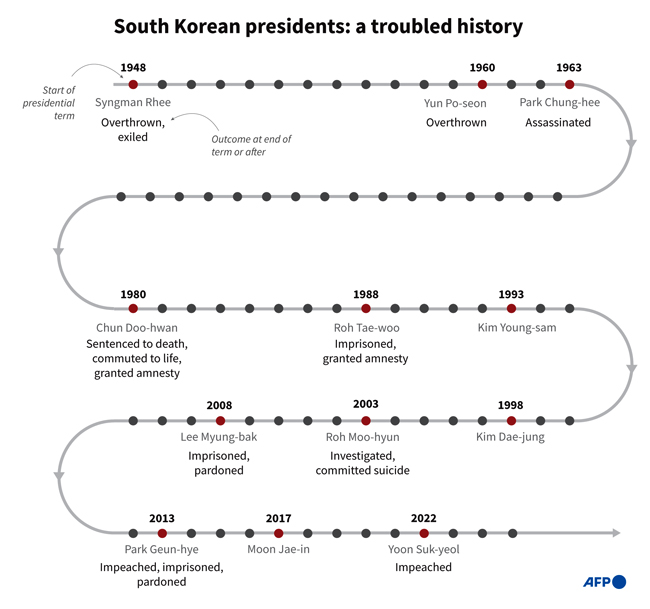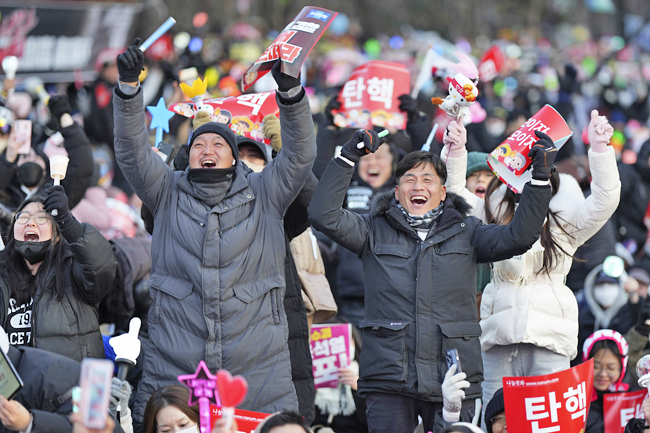SEOUL (AP) – The South Korean Constitutional Court’s decision to formally unseat President Yoon Suk Yeol is another test for the country’s democracy after the conservative-liberal divide deepened over his imposition of martial law and subsequent impeachment.
The court’s ruling yesterday triggers a by-election for a new president.
Yoon still faces criminal charges of rebellion, but he’s unlikely to fade into the background.
He is likely to thrust himself onto the political agenda, rallying his hard-core supporters and influencing the choice of the next leader of his party, which has made intensive efforts to regroup around calls for his reinstatement. Here’s what you need to know about the court decision.
WHY DID THE COURT REMOVE YOON FROM OFFICE?
All eight of the Constitutional Court’s current justices upheld the impeachment motion and dismissed Yoon as president.
The constitutional crisis began on December 3 when Yoon declared martial law and dispatched troops to the National Assembly.
Lawmakers defied hundreds of soldiers and police officers to enter the legislative chamber and unanimously voted to lift martial law within hours.
On December 14, the liberal opposition-controlled assembly impeached Yoon and suspended his presidential powers, accusing him of violating the constitution by declaring martial law, deploying troops to the legislature and election offices, and attempting to arrest opponents.




The constitution limits the exercise of martial law to times of war or comparable national emergencies. Yoon argued his decree was necessary to bring attention to what he called an “anti-state” main opposition party that abused its legislative majority to obstruct his agenda. Even under martial law, the president doesn’t have the authority to shut down the legislature.
Shortly after Yoon’s martial law declaration, the military’s martial law command issued a proclamation prohibiting “all political activities”, including those of the National Assembly.
Yoon has insisted that he never intended to disable the legislature, saying he sent troops there to maintain order, not to disrupt the vote. He also denied accusations that he sought arrests of rival politicians. Yoon’s claims were contradicted by testimony from several senior military and police officers, who described a deliberate but poorly executed attempt to seize the legislature. In removing Yoon from office, the Constitutional Court rejected his argument that martial law was merely a temporary warning or an appeal to the public, stating he clearly violated the constitution and laws by “mobilising military and police forces to obstruct the exercise of legislative authority”.
SOUTH KOREA HAS 60 DAYS TO CHOOSE A NEW PRESIDENT
South Korea must now hold a presidential election within 60 days – potentially one of the most tense votes since the country’s transition from dictatorship in the late 1980s. The country’s electorate is deeply divided along ideological lines and Yoon’s legal saga has exacerbated polarisation.
Yoon’s conservative supporters rioted at the Seoul Western District Court that authorised his arrest in January. Yoon’s lawyers and the ruling party have openly questioned the credibility of that court and law enforcement institutions, and he has continued to express contempt for his liberal rivals, endorsing baseless conspiracy theories about election fraud to justify his ill-fated authoritarian push.
Experts said Yoon’s actions are fueling severe political division, making compromise unlikely, and threaten to undermine the election by inspiring voter distrust in the results.
There’s a high risk of disruption during the voting process, making it crucial to elevate security at polling and counting stations, said a politics analyst and former Gumi city council member Kim Su-min.
“If people start refusing to accept any election outcome that is unfavourable to them, the other side will start doing the same,” said a professor at Seoul’s Soongsil University Kim Tae-hyung. “If that cycle continues, trust in democracy will completely collapse.”
YOON MAY NOT GO QUIETLY
Yoon, never one to back down from a fight, may refuse to be ignored. In a statement issued through his lawyers, Yoon said he deeply regrets failing to live up to the public’s expectations, but didn’t say whether he accepts the court’s ruling.
Facing a separate criminal trial on rebellion charges – punishable by death or life in prison – Yoon would strongly prefer a conservative president who could pardon him if convicted and will likely push to ensure his party’s primaries are won by a candidate he supports, Kim Su-min said.
This would turn the upcoming election into a near-rematch between Yoon and liberal Democratic Party leader Lee Jae-myung, who narrowly lost to Yoon in 2022 and has his own legal troubles. Whoever it is, South Korea’s next leader will face critical challenges.
YOON STILL FACES CRIMINAL CHARGES
Yoon was released from prison in March after the Seoul Central District Court cancelled his arrest and allowed him to stand trial without being detained.
But as a former president, Yoon has lost the presidential privilege that protected him from most criminal prosecution except on grave charges like rebellion.
Prosecutors can now pursue other criminal charges related to Yoon’s martial law declaration and seek to detain him.
Legal experts said the Constitutional Court’s dismissal of Yoon could increase the chance he will be convicted of rebellion charges at the Seoul Central District Court.
Yoon’s defence minister, police chief and other senior military commanders have also been arrested and indicted over their roles in the martial law imposition.


